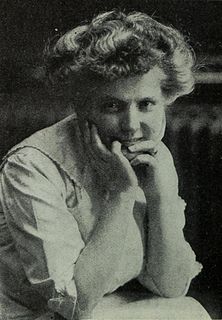A Quote by Thomas Aquinas
Man is closer to God according to his existence in grace than he is according to his existence in nature.
Related Quotes
In order to the existence of such a ministry in the Church, there is requisite an authority received from God, and consequently power and knowledge imparted from God for the exercise of such ministry; and where a man possesses these, although the bishop has not laid hands upon him according to his traditions, God has Himself appointed him.
Just as man's physical existence was liberated when he grasped that 'nature, to be commanded, must be obeyed', so his consciousness will be liberated when grasps that nature, to be apprehended, must be obeyed - that the rules of cognition must be derived from the nature of existence and the nature, the identity, of his cognitive faculty.
Man never ceases to seek knowledge about the objects of his experiences, to understand their meaning for his existence and to react to them according to his understanding. Finally, out of the sum total of the meanings that he has deduced from his contacts with numerous single objects of his environment there grows a unified view of the world into which he finds himself "thrown" (to use an existentialist term again) and this view is of the third order.
If God were to exist for the entire humanity, he would be profoundly vile, as he allows the existence of unfathomable sin, stupidity, madness, and misery for no reason than his own despicable enjoyment. God exists though, not for all humanity, but for a one chosen man - a philosopher - who is bound to answer the greatest philosophical question, the question about the nature of the questioner's existence, which progressively quenches the divine vanity.
A Christian man is on his guard with respect to those who philosophize according to the elements of this world, not according to God, by Whom the world itself was made; for he is warned by the precept of the apostle and faithfully hears what has been said, 'Beware that no one deceive you through philosophy and vain deceit, according to the elements of the world'
The man is distinguished from the youth by the fact that he takes the world as it is, instead of everywhere fancying it amiss and wanting to improve it, i.e. model it after his ideal; in him the view that one must deal with the world according to his interest, not according to his ideals, becomes confirmed.
God is beyond definition. But according to one's own vision or receptivity, one will define God in one's own way. Some will say that God is all Love. Others will say that God is all Power. Each one will see God according to his own necessity, his own receptivity and, finally, according to the way God wants him to see the ultimate Truth.
The scriptures, for example, discredit an ancient philosophy that has come back into vogue in our day-the philosophy of Korihor that there are no absolute moral standards, that "every man prospers according to his genius, and that every man conquers according to his strength; and whatsoever a man does is no crime" and "that when a man is dead, that is the end thereof".





































